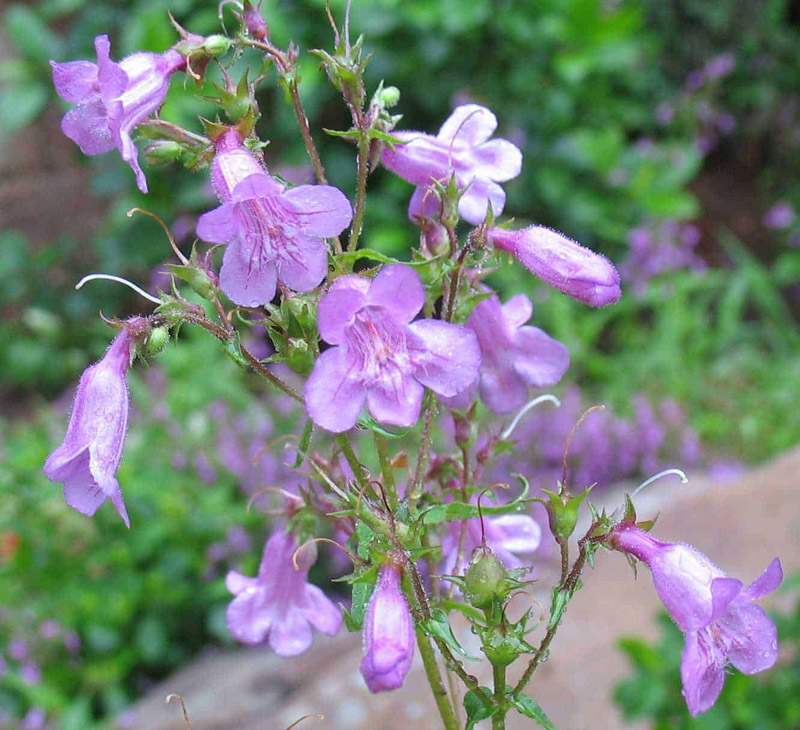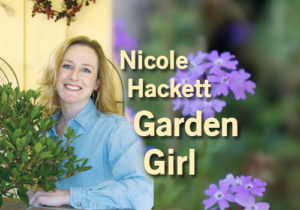
 CLAYTON, CA (May 23, 2024) — This has been a gardening type of the year. With two years of decent rains, folks have been motivated to get their landscapes and gardens flowering again.
CLAYTON, CA (May 23, 2024) — This has been a gardening type of the year. With two years of decent rains, folks have been motivated to get their landscapes and gardens flowering again.
We are constantly refilling nursery shelves with flowering annuals and perennials as many get their hands dirty for the first time in years. There are so many great choices for us to enjoy. Penstemon, salvia, sea lavender, calibrachoa (Million Bells) and alstroemeria are some of the showiest and most flowertastic plants to install in Clayton Valley gardens and landscapes.
First and foremost, you’ll need happy, healthy soil for flowering plants. Whether your soil is in a container or in the ground, it needs to look dark and loose. Work in rich soil conditioners. Choose a product that looks like potting soil, smells a bit like manure and doesn’t have too much visible wood.
Penstemon is one of the simplest, yet most attractive evergreen perennials available. Depending on the selection, expect penstemon to grow roughly 2-3 feet tall and wide. Trumpet-shaped flowers are born in rows along dark green stems. Penstemon has a color for every palette: reds, pinks, white, purple and many bicolors. This perennial blooms May-October and attracts hummingbirds.
Salvia
Salvia is a huge group of woody and herbaceous perennials. The woody selections have tiny, two-lipped shaped flowers in pinks, red and lavender. Some favorites to consider are Hot Lips (red and white bicolor blooms), Leucantha (commonly called Mexican sage) with fuzzy, purple flowers and white tips, and Maynight, an herbaceous selection that reaches 2 feet tall and wide and creates a stunning impact in any full-sun garden bed.
Salvia Mystic Spires has a woody shape. It reaches 30 inches tall and 20 inches wide, with dark green leaves and royal blue stacked flowers. A couple new series of salvia to look for are the vibe and mirage series. Both host great colors of two-lipped flowers in reds, purples and hot pinks, yet they reach only 16-18 inches tall and wide – making them great for smaller, sunny garden areas.
Sea lavender is old-fashioned, and recognizable. Folks have seen it on walks through the neighborhoods for years. It has large, lettuce-like dark green leaves. Stems stand 18-30 inches tall and hold purple flower clusters that can be as large as 6 inches wide. This evergreen perennial is nearly everblooming. Bees and butterflies use the flower clusters as landing pads. Occasionally the winter gets too frosty and some plants may succumb to the cold temperatures, but the rewards are worth the risk.
Million Bells
Calibrachoa is the family of plants that we know as Million Bells. Calibrachoa is a type of petunia that doesn’t get sticky and seldom suffers from petunia bud worms. Million Bells are best planted in raised beds, hanging baskets and containers. They have a desirable cascade to their growth, and the color selections are outrageous. The plant only lasts two or three years, but it’s so awesome you’ll just get another once your original dies. Million Bells flower March-October. They require hard prunes occasionally and like regular fertilizer formulated for blooms.
If alstroemeria wasn’t so expensive, it would be the perfect perennial. Azalea-shaped flowers surge into waves of blooms all growing season. Alstroemeria is available in standard sizes and dwarf selections. They can be divided and shared. Alstroemeria serves as a great cut flower.
There are many amazing perennials to grow, but this list of plants contains nearly sure things. As you peruse your garden centers, ask to see these selections. They do great around here.
Contact Nicole Hackett with questions or comments by email at gardengirl94517@yahoo.com.

Nicole Hackett
Nicole is the Garden Girl at R&M Pool, Patio, Gifts and Garden. You can contact her with questions or comments by email at gardengirl94517@yahoo.com
Source: pioneerpublishers.com

Leave a Reply